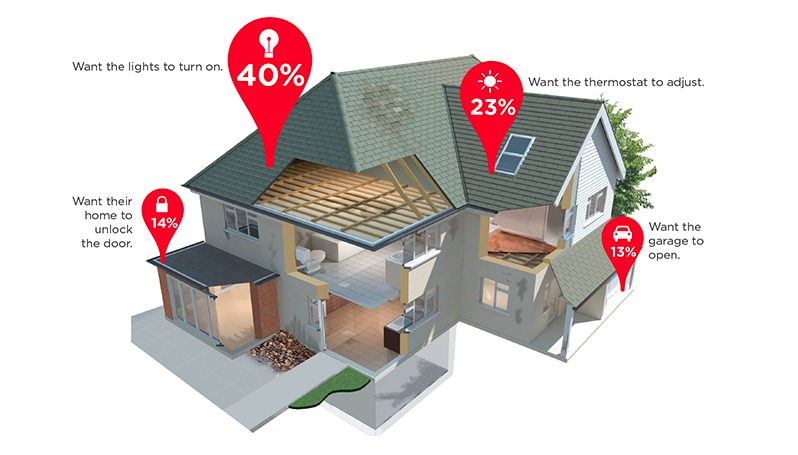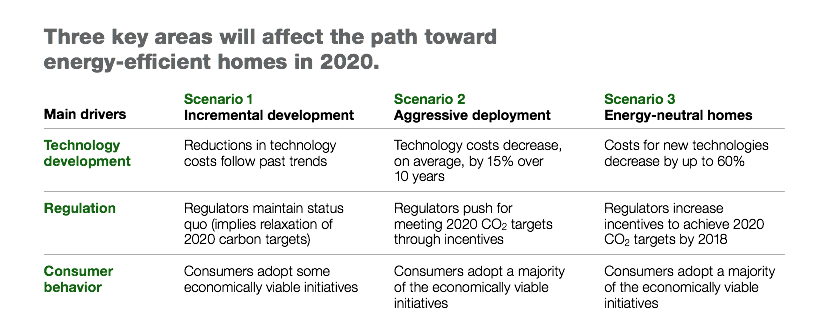The corporate race is on to dominate the rapidly expanding market for smart homes, dwellings in which appliance, heating, entertainment and security systems communicate with each and can be controlled remotely via smart phones and other digital devices.
Consumers want to save time, energy and money, and the automated home market could reach by $71 billion by 2018 — up from $33 billion in 2013, according to a recent study by Juniper Research.

Platform wars
How best to invest in the smart home boom? The real winners will be the companies that win the platform wars.
Rival corporate alliances are vying to control the communication protocols and software standards to allow different home systems to talk to each other.
There are various smartphone apps out there that control a single functions such as the Google (GOOG) Nest smart thermostats, the LG (LGEPF) Smart ThinQ refrigerators and Sonos speakers.
Trouble is, these systems don’t speak to the same language.
Google and Apple
To change all that, Google Nest recently purchased Revolv, a hub that let’s consumers control all of their automated home devices from one master app on their smartphones.
Apple (AAPL) is preparing a new software platform dubbed HomeKit that centers around the iPhone that would work with with security systems, lights and household appliances that might enhance demand for its franchise smartphone.
Not to be outdone, Samsung is working on its Smart Home platform that would sync with its Galaxy line-up.
Other contenders include Belkin’s WeMo, which is making a serious run to be the dominant player in the connected home with wireless technology that will control power and appliances.
It recently introduced Belkin’s WeMo Smart LED Bulbs that will bring it into competition with other brands such as Philips Hue Personal Wireless Lighting and General Electric’s (GE) Link lighting products.
Microsoft
For its, part Microsoft (MSFT) has chosen startup 10 companies, including Chai Energy, Heatworks, and Red Balloon Security, to participate in its accelerator program, in which companies receive investments and technical training to develop commercially viable strategies.
Amazon.com (AMZN) is reaching out to developers for various smart home projects and has devoted $55 million for such research at its Silicon Valley engineering center, Lab126.
There’s the possibility that open standards such as SmartThings and ZigBee could prevail, which could through the market wide open.
And the telcos are in the race as well. Take the Time Warner Cable’s Intelligent Home program that offers energy management and 24-hour video security services.
Much will ride on how enthusiastically consumers embrace these technologies.
A survey by research firm icontrol networks published earlier this suggested that tech enthusiasts are most likely to be interested in automated homes.
These younger consumers are most interested in family security and the convenience of automating the functions inside their homes.

Here’s what surveyed consumers were most interested in, according to icontrol networks.
Big picture
Further out, McKinsey sees three possible scenarios that will shape the outlook for the smart home industry through 2020.

In the most optimistic scenario, the consulting firm sees regulators pushing hard to reduce CO2 emissions and smart home technologies declining in price, opening the way for a mass market.
Add it all up and it’s clear the smart house market has attracted the big names in tech and consumer appliances.
To the victor in the platform wars will go the spoils. And that’s the key trend for investors to track.
DISCLAIMER: The investments discussed are held in client accounts as of October 31, 2014. These investments may or may not be currently held in client accounts. The reader should not assume that any investments identified were or will be profitable or that any investment recommendations or investment decisions we make in the future will be profitable. Past performance is no guarantee of future results.

